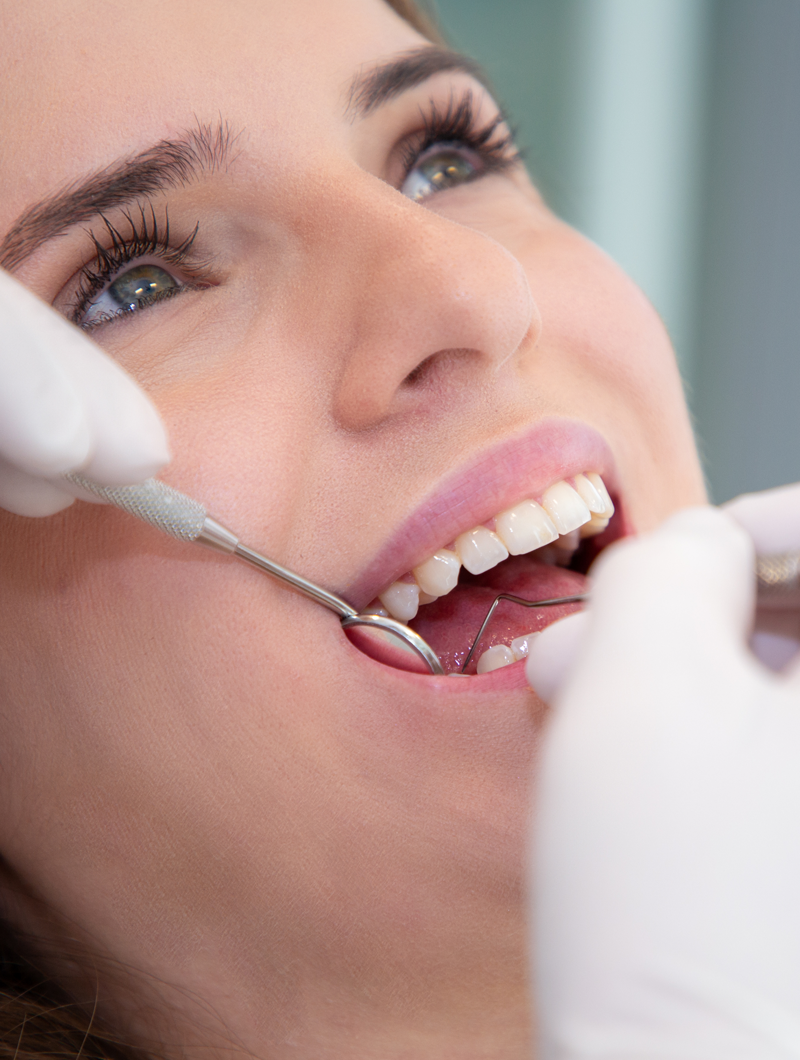General Dentistry
Healthy teeth and gums are the foundation of your smile! General dentistry focuses on the prevention, diagnosis and treatment of all oral problems, ensuring long-term oral health.


What is general dentistry and why is it important?
General dentistry encompasses basic dental services to maintain the health of your teeth, gums, and oral cavity. The goal of this branch of dentistry is to prevent and treat problems such as tooth decay, gum disease, and other conditions that can affect your oral and general health.
Who is general dentistry for?
General dentistry is for everyone – children, adults, and seniors – who wants to prevent or resolve everyday dental problems such as tooth decay, gum disease, tooth sensitivity, and other oral problems.
What do general dentistry procedures look like?
Our expert dentists approach each patient with special care, primarily through a detailed oral health assessment and then through individualized treatment plans that meet all your dental needs.
Our goal is to provide quality care, using modern methods and technologies that guarantee maximum efficiency and comfort. Through every step of the process, we ensure that you receive the best possible dental care - from the first consultation to the completion of the treatment. Your health and satisfaction are our greatest motivation.
Frequently asked questions
How to prevent cavities?
Preventing cavities starts with daily oral health care. Brushing your teeth regularly at least twice a day with fluoride toothpaste is the most important step in removing plaque and strengthening tooth enamel. In addition to brushing, daily flossing removes food debris and plaque from hard-to-reach spaces between teeth.
Avoiding excessive consumption of sugar and acidic beverages is also important, as they can weaken tooth enamel and create a favorable environment for bacteria to grow. Regular visits to the dentist – at least twice a year – will allow you to have your teeth professionally cleaned and detect potential problems in a timely manner.
How to solve the problem of bad breath?
Bad breath is most often the result of a buildup of bacteria on the tongue, teeth, or gums. The solution starts with proper oral hygiene—brushing your teeth and tongue thoroughly at least twice a day and flossing daily. Using antibacterial mouthwashes further reduces bacteria and neutralizes odors.
Hydration is key to stimulating saliva production, which naturally washes away bacteria. If bad breath persists despite proper hygiene, consult a dentist to determine possible causes—such as gum disease, cavities, or systemic health problems.
Is dental treatment painful?
Modern dentistry ensures a high level of comfort during all procedures, and local anesthesia makes treatments completely painless, even for more complex procedures such as endodontics. Our dentists pay special attention to the individual needs of patients to provide them with a pleasant experience and painless treatments.
What happens if I ignore the symptoms of tooth decay or inflammation?
Ignoring the symptoms of tooth decay or inflammation can lead to more serious problems, including deep infections, tooth loss, and the spread of bacteria to other parts of the body. Untreated tooth decay can progress to inflammation of the tooth nerve, while inflammation can cause an abscess – a painful collection of pus. A timely visit to the dentist is important to avoid complications and maintain oral health.
What are the symptoms of tooth nerve inflammation?
Symptoms of tooth nerve inflammation most often include intense, throbbing pain that can be constant or intermittent, especially at night. Patients often experience increased sensitivity to hot, cold, or sweet foods and drinks. An inflamed nerve can cause swelling of the gums or face in the area of the affected tooth, and sometimes redness or the appearance of a fistula on the gums. Additional symptoms include bad breath and difficulty chewing. If you notice these signs, see a dentist as soon as possible to prevent more serious complications.
How long do composite fillings last and when do they need to be replaced?
Composite fillings usually last 5–10 years, but their durability depends on the quality of the material, oral hygiene, and your eating habits. Replacing a filling is necessary when there are signs of wear, cracks, discoloration, or decay under the filling. Regular dental checkups are the best way to identify the need for filling replacement early, thus preventing further complications and preserving the functionality of the tooth.

"Regular dental care is the key to long-term oral health. Through general dentistry, we not only solve dental problems, but also provide patients with the opportunity for a healthy and beautiful smile."
Marija Đaković, dr.med.dent.